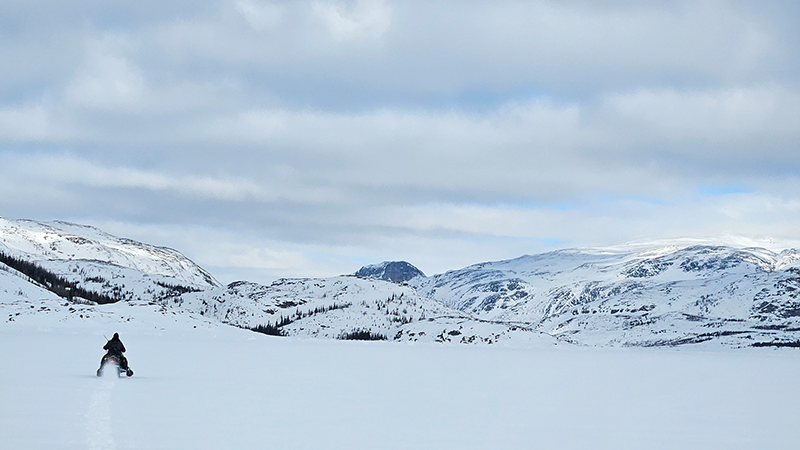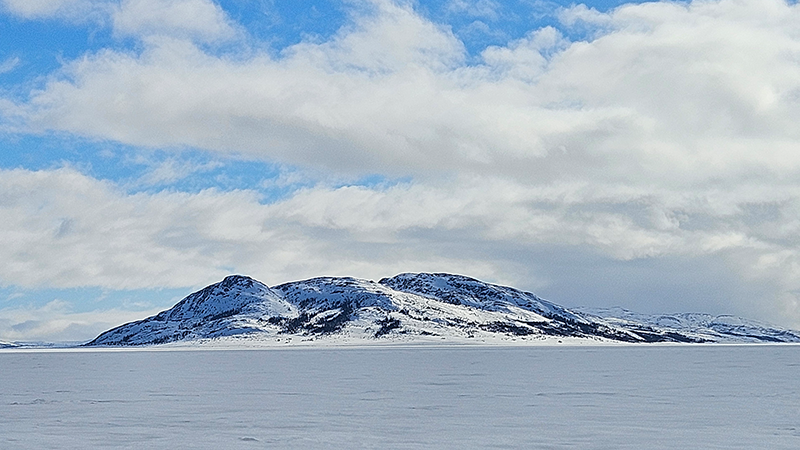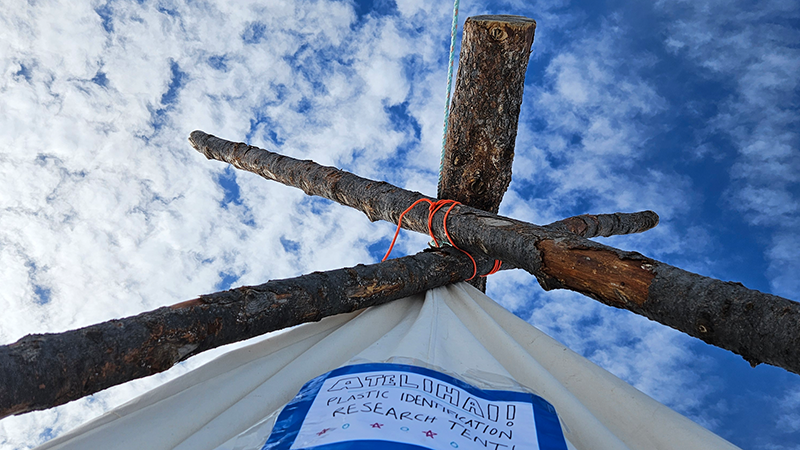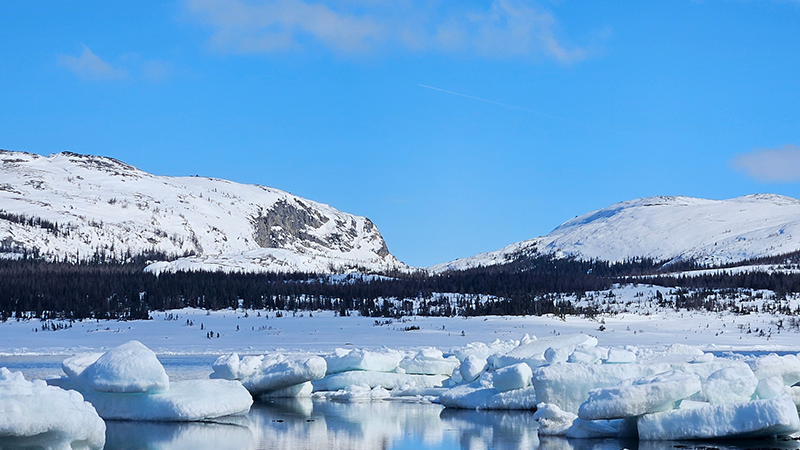Riley Cotter

Master's (Thesis), Department of Geography
Can you tell us about your current research and other activities?
My Master's research is concerned with community-centered methods for plastic pollution monitoring.
Specifically, my work's plastic monitoring takes place in Nunatsiavut's marine surface waters, and seeks to answer community-raised questions on community terms through its process and its results.
My work is part of a larger plastic monitoring project co-led by Max Liboiron (my supervisor) and Liz Pijogge (the Northern Contaminants Researcher for the Nunatsiavut Government), but in the past I've worked on similar plastic monitoring projects for NunatuKavut Community Council and Miawpukek First Nation.
Check it out: Riley and Dr. Liboiron recently published an article about Indigenous pollution governance.

What makes Memorial particularly suited for your work?
I've lived in Newfoundland and Labrador my whole life and I did my undergrad at Memorial. I love it here, but quite honestly, I was ready for a change when I graduated. I applied and got accepted to other universities but I really couldn't find another space that fit my research interests and values. The work I wanted to do (namely feminist, anticolonial science) was, apparently, quite niche. But I was still passionate and excited about it. So, I accepted that I was lucky to have found the CLEAR lab and Geography Department at Memorial on my first try and I stuck around.
I'm really happy with my decision. If it's not broke, don't fix it!
As for what makes Memorial special, firstly, I think it's so cool that Northern and ocean research at Memorial happens from many, vastly different academic disciplines. It seems like most departments have some interest in oceans and/or the North, so I think the diversity and robustness of differing disciplinary perspectives makes this a really great place to get a more comprehensive view of the North and its oceans.
I also think the geography of this place is a big key to Memorial's success in Northern/ocean research. Newfoundland and Labrador obviously has an intrinsic historical and cultural tie to the ocean. People here have always relied on the ocean so I think it's only fitting that a lot of research coming from Memorial is ocean-centric. A lot of the province's geography being situated in the Arctic further strengthens the Northern connection, and even those areas outside of the commonly-understood "Arctic" have an implicit familiarity with the lifeways associated with Northern living.

Any recent events or experiences you'd like to share with us?
I recently got to present some of my Master's work at the Society for Social Studies of Science (4S) conference in Amsterdam. I love that my work is pertinent to natural and social science audiences, and I like the challenge of existing in both spaces simultaneously. It was fun!
Did you have any favorite classes this year, or during your undergrad?
In my last semester of undergrad, I took Feminist GeoTechnologies (GEOG 4107) with Dr. Max Liboiron. I was really nervous because I hadn't taken a feminist methods course (or even a geography course!) before. But that course piqued my interest and answered a lot of questions I'd always had about research, technology, and justice. So that class led to me working for Dr. Liboiron at the CLEAR lab, and eventually to my Master's work.
As for graduate courses, Dr. Arn Keeling's Arctic and North Geographies (GEOG 6900) has really informed my current view on Arctic research. Highly recommend!

Any future plans?
I am a go-with-the-flow person (ocean pun!). I am going to focus on finishing my Master's degree and then pursue more research that sparks my interests. I'm currently undecided on what form that'll take. Right now, I'm just happy seeing what comes my way.
And finally--anything you'd like folks to know about the North?
There is so much diversity in the North, in terms of perspectives, ideas, cultures, and lifestyles.
"The North" as a monolith doesn't exist to the extent we often think it does.
Developing a sensitivity to conduct research for *communities in the North* goes a long way in producing outcomes that are meaningful to people. Context-specific research is so important in the North!

All photos taken and provided by Riley